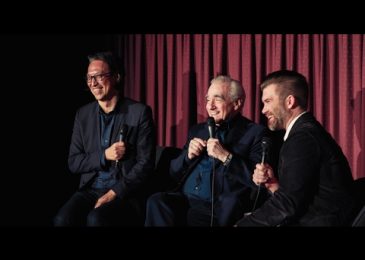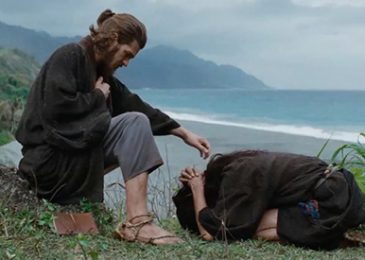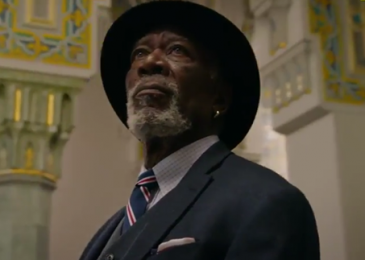You just can’t keep a bad demonic force down, I guess.
It’s been 45 years since William Peter Blatty wrote The Exorcist, and more than 40 since Blatty’s work became one of the best-known, most-feared movies in history. Now, thanks to Fox, The Exorcist is back, only with more installments and, hopefully, less pea soup.
The story is different this time around, but its dynamics are roughly the same: A young girl from an affluent family is involved. A doubting priest and a grizzled veteran exorcist are called in to help, if they can. And throughout the opening episode, there’s a sense of skepticism that was very much a part of the original movie, too. Possession isn’t, like, actually a thing, is it?
“Angela, demons aren’t real,” young Father Tomas says to the worried mother. “They’re an invention of the Church to explain addiction. Mental illness. … Demons are metaphors.”
“You don’t think I don’t know that?” Angela says. “I am telling you, something is going on. There is a presence, and I feel it.”
It’s too early to tell whether Fox’s new show will be good, really, and way too early to say whether it’ll be a success. But the network’s decision to engage with an explicitly Christian story is something I find kind of remarkable. It’s a rare thing to see, and according to some, it’s getting more rare all the time.
In an essay for The Atlantic, Nick Ripatrazone suggests that shows like The Exorcist are a tough sell these days in an increasingly secular culture, and that the great tradition of Christian storytelling—Catholic storytelling, specifically—is fading into obscurity. Writes Ripatrazone:
The executive producer Jeremy Slater says the show “tackles big questions about faith and redemption,” and that it hopes to continue telling the story started in the iconic 1973 film, which still “has a primal power.” The contemporary audience for Catholic writing, though, is very different. Recently, research from Georgetown University found that only a quarter of Catholics attend weekly Mass, with more than half reporting they attend a few times a year, or less. Only 14 percent of millennial Catholics attend Mass every week. In contrast, over half of Catholics attended weekly Mass in 1965—and over 60 percent attended in 1958.
But here’s the thing: While religion may be on the wane, the questions that religion tries to answer are not. Why are we here? What makes us special? Why is there evil? What do we do about it? If we try to answer those questions outside the realm of religion, the answers not only feel unsatisfying, they feel inadequate to explain much of anything. Just like Angela, most of us know there’s more at work than meets the eye.
For me, storytelling has always been about those resonant mysteries. And even if a story doesn’t address those mysteries in an explicitly religious way, there’s still an implicit understanding that there’s something more at work here—more than physics or biology or chemistry can explain. Superhero stories are about universal good and evil, right and wrong. Rom-coms tell us that love is about more than a base, biological urge, but a mysterious, powerful force. Horror stories like The Exorcist ask questions that play on our hopes and fears and even ponder the nature of reality itself.
So many stories are about love. About courage. About faith in something, even if it’s not explicitly God. The impulses we have that we can’t altogether explain. And if we ever were convinced that we were simply cosmic accidents, the byproducts of a mindless, moral-free universe—it wouldn’t be just religion that would die: It’d be our stories, too.
In the first episode of The Exorcist, Father Tomas—the doubting priest—tells his parishioners the story of Jesus walking on water. Peter, encouraged by Jesus, takes a few steps on the water himself … until he looks down, whereupon he sinks like a stone. And as the episode goes on it’s clear that he is Peter. He wants to believe. He wants to follow. But it’s hard for him. So very hard.
Sometimes I think that our culture is a little like that water. It’s so easy to look down and see how hopeless it all looks. It’s a wonder we don’t all sink from the despair.
I think it’s our stories, in a way, that keep us above the waves. It’s in those stories where we find our faith—faith in ourselves, faith in our future, maybe even faith in God. They tell us that life has purpose. That we’re special even when we don’t feel so. That we have the potential to love and be loved. That we can make a difference. They might not be explicitly Christian stories, but many, I think, reflect—however dimly—Christian truth. The water indeed looks black and cold. But we see that truth ahead of us and it keeps us walking, step by shaky step.





